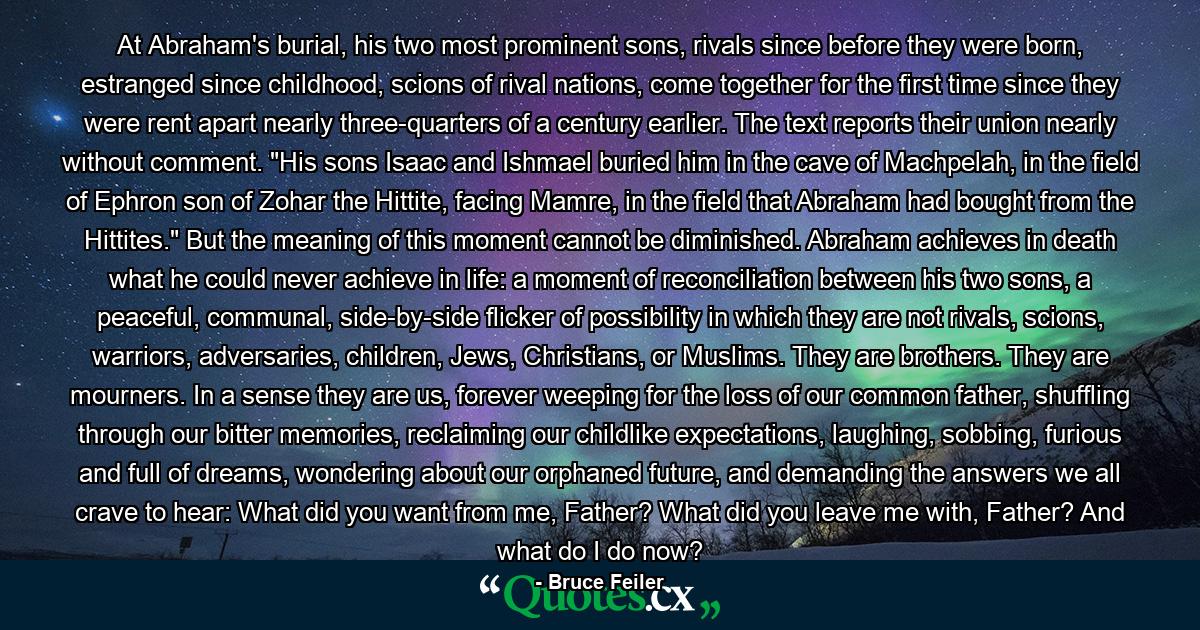At Abraham’s burial, his two most prominent sons, rivals since before they were born, estranged since childhood, scions of rival nations, come together for the first time since they were rent apart nearly three-quarters of a century earlier. The text reports their union nearly without comment. “His sons Isaac and Ishmael buried him in the cave of Machpelah, in the field of Ephron son of Zohar the Hittite, facing Mamre, in the field that Abraham had bought from the Hittites.” But the meaning of this moment cannot be diminished. Abraham achieves in death what he could never achieve in life: a moment of reconciliation between his two sons, a peaceful, communal, side-by-side flicker of possibility in which they are not rivals, scions, warriors, adversaries, children, Jews, Christians, or Muslims. They are brothers. They are mourners. In a sense they are us, forever weeping for the loss of our common father, shuffling through our bitter memories, reclaiming our childlike expectations, laughing, sobbing, furious and full of dreams, wondering about our orphaned future, and demanding the answers we all crave to hear: What did you want from me, Father? What did you leave me with, Father? And what do I do now?
